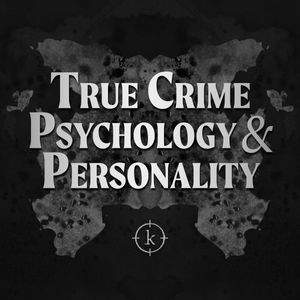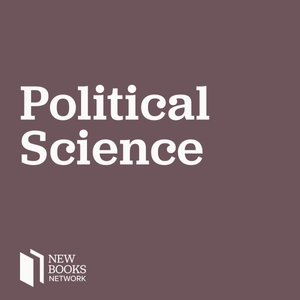
Erin L. Durban, "The Sexual Politics of Empire: Postcolonial Homophobia in Haiti" (U Illinois Press, 2023)
04/02/24 • 63 min
Evangelical Christians and members of the global LGBTQI human rights movement have vied for influence in Haiti since the 2010 earthquake. Each side accuses the other of serving foreign interests. Yet each proposes future foreign interventions on behalf of their respective causes despite the country’s traumatic past with European colonialism and American imperialism.
In The Sexual Politics of the Empire: Postcolonial Homophobia in Haiti (University of Illinois Press, 2023), author Erin L. Durban shows two discourses dominate discussions of intervention. One maintains imperialist notions of a backward Haiti so riddled with cultural deficiencies that foreign supervision is necessary to overcome Haitians’ resistance to progress. The other sees Haiti as a modern but failed state that exists only through its capacity for violence, including homophobia. In the context of these competing claims, the book explores the creative ways that same-sex desiring and gender creative Haitians contend with anti-LGBTQI violence and ongoing foreign intervention.
As the episode neared its conclusion, Erin took a moment to shine a spotlight on the vital efforts of various organizations operating within Haiti, emphasizing the significance of their work and expressing a keen interest in bringing their endeavors to the forefront. The aim was not only to acknowledge these organizations but also to explore avenues through which individuals could offer their support, be it through donations, volunteering, or simply by raising awareness about their commendable efforts. These entities represent just a fraction of the many groups making a difference in Haiti, and include:
- 1. The Haitian Studies Association: An organization dedicated to scholarly research and academic excellence concerning Haiti and its diaspora.
- 2. The Lambi Fund of Haiti: A group focused on supporting economic justice, democracy, and sustainable development in Haiti through grassroots initiatives.
- 3. Partners In Health (PIH) in Haiti: A healthcare organization committed to bringing high-quality health care to some of Haiti's most remote areas.
- 4. Association of Haitian Women in Boston: An organization aimed at empowering Haitian women by providing them with resources to achieve social and economic stability.
Erin L. Durban is an associate professor in the Department of Anthropology at the University of Minnesota–Twin Cities, affiliated with American Studies; Gender, Women, Sexuality Studies; and the Center for Race, Indigeneity, Disability, Gender, and Sexuality Studies. Their scholarship works at the intersections of interdisciplinary feminist and queer studies, transnational American studies, critical disability studies, and critical ecologies.
Aleem Mahabir is a PhD candidate in Geography at the University of the West Indies, Mona, Jamaica. His research interests lie at the intersection of Urban Geography, Social Exclusion, and Psychology. His dissertation research focuses on the link among negative psychosocial dispositions, exclusion, and under-development among marginalized communities in Port of Spain, Trinidad and Tobago. You can find him on Twitter.
Learn more about your ad choices. Visit megaphone.fm/adchoices
Support our show by becoming a premium member! https://newbooksnetwork.supportingcast.fm/critical-theory
Evangelical Christians and members of the global LGBTQI human rights movement have vied for influence in Haiti since the 2010 earthquake. Each side accuses the other of serving foreign interests. Yet each proposes future foreign interventions on behalf of their respective causes despite the country’s traumatic past with European colonialism and American imperialism.
In The Sexual Politics of the Empire: Postcolonial Homophobia in Haiti (University of Illinois Press, 2023), author Erin L. Durban shows two discourses dominate discussions of intervention. One maintains imperialist notions of a backward Haiti so riddled with cultural deficiencies that foreign supervision is necessary to overcome Haitians’ resistance to progress. The other sees Haiti as a modern but failed state that exists only through its capacity for violence, including homophobia. In the context of these competing claims, the book explores the creative ways that same-sex desiring and gender creative Haitians contend with anti-LGBTQI violence and ongoing foreign intervention.
As the episode neared its conclusion, Erin took a moment to shine a spotlight on the vital efforts of various organizations operating within Haiti, emphasizing the significance of their work and expressing a keen interest in bringing their endeavors to the forefront. The aim was not only to acknowledge these organizations but also to explore avenues through which individuals could offer their support, be it through donations, volunteering, or simply by raising awareness about their commendable efforts. These entities represent just a fraction of the many groups making a difference in Haiti, and include:
- 1. The Haitian Studies Association: An organization dedicated to scholarly research and academic excellence concerning Haiti and its diaspora.
- 2. The Lambi Fund of Haiti: A group focused on supporting economic justice, democracy, and sustainable development in Haiti through grassroots initiatives.
- 3. Partners In Health (PIH) in Haiti: A healthcare organization committed to bringing high-quality health care to some of Haiti's most remote areas.
- 4. Association of Haitian Women in Boston: An organization aimed at empowering Haitian women by providing them with resources to achieve social and economic stability.
Erin L. Durban is an associate professor in the Department of Anthropology at the University of Minnesota–Twin Cities, affiliated with American Studies; Gender, Women, Sexuality Studies; and the Center for Race, Indigeneity, Disability, Gender, and Sexuality Studies. Their scholarship works at the intersections of interdisciplinary feminist and queer studies, transnational American studies, critical disability studies, and critical ecologies.
Aleem Mahabir is a PhD candidate in Geography at the University of the West Indies, Mona, Jamaica. His research interests lie at the intersection of Urban Geography, Social Exclusion, and Psychology. His dissertation research focuses on the link among negative psychosocial dispositions, exclusion, and under-development among marginalized communities in Port of Spain, Trinidad and Tobago. You can find him on Twitter.
Learn more about your ad choices. Visit megaphone.fm/adchoices
Support our show by becoming a premium member! https://newbooksnetwork.supportingcast.fm/critical-theory
Previous Episode

Huaping Lu-Adler, "Kant, Race, and Racism: Views from Somewhere" (Oxford UP, 2023)
Kant scholars have paid relatively little attention to his raciology. They assume that his racism, as personal prejudice, can be disentangled from his core philosophy. They also assume that racism contradicts his moral theory. In Kant, Race, and Racism: Views from Somewhere (Oxford UP, 2023), philosopher Huaping Lu-Adler challenges both assumptions. She shows how Kant's raciology--divided into racialism and racism--is integral to his philosophical system. She also rejects the individualistic approach to Kant and racism. Instead, she uses the notion of racism as ideological formation to demonstrate how Kant, from his social location both as a prominent scholar and as a lifelong educator, participated in the formation of modern racist ideology.
As a scholar, Kant developed a ground-breaking scientific theory of race from the standpoint of a philosophical investigator of nature or Naturforscher. As an educator, he transmitted denigrating depictions of the racialized others and imbued those descriptions with normative relevance. In both roles, he left behind, as one of his legacies, a worldview that excluded non-whites from such goods as recognitional respect and candidacy for cultural and moral achievements. Scholars who research and teach Kant's philosophy therefore have an unshakable burden to take part in the ongoing antiracist struggles, through their teaching practices as well as their scholarship. And they must do so with a pragmatic attention to nonideal social realities and a deliberate orientation toward substantial racial justice, equality, and inclusion.
Lu-Adler pushes the discourse about Kant and racism well beyond the old debates about whether he was racist or whether his racism contaminates his philosophy. By foregrounding the lasting legacies of Kant's raciology, her work calls for a profound reorientation of Kant scholarship.
Huaping Lu-Adler is Associate Professor of Philosophy at Georgetown University. She specializes in seventeenth- and eighteenth-century Western philosophy (particularly epistemology, metaphysics, philosophy of science, and logic). She is the author of Kant and the Science of Logic (Oxford, 2018).
Morteza Hajizadeh is a Ph.D. graduate in English from the University of Auckland in New Zealand. His research interests are Cultural Studies; Critical Theory; Environmental History; Medieval (Intellectual) History; Gothic Studies; 18th and 19th Century British Literature. YouTube channel. Twitter.
Learn more about your ad choices. Visit megaphone.fm/adchoices
Support our show by becoming a premium member! https://newbooksnetwork.supportingcast.fm/critical-theory
Next Episode

Dominic Boyer, "No More Fossils" (U Minnesota Press, 2023)
Our hosts, Devin Griffiths and Deanna Kreisel, sat down with Dominic Boyer to talk about his new book, No More Fossils, which appeared just last year (2023) from the University of Minnesota's "Forerunners" series. We talked at length about his book, its gestation in basic questions about how to divest from fossil energy and fossil culture, and the grounds for optimism about our future. In a wide ranging discussion, we also talked about utopia, our investment in memoir and place-based writing, the importance of affect and anxiety in thinking about climate, and the fiction, scholarship, and activism that gives us inspiration.
Some show notes: we talked about other work by Dominic (including his books Hyposubjects and Energopolitics); other works on energy and ecocriticism (including Patricia Jaeger's column "Literature in the Ages of Wood, Tallow, Coal, Whale Oil, Gasoline, Atomic Power, and Other Energy Sources"; Cara New Dagget's The Birth of Energy; Allen MacDuffie's Victorian Literature, Energy, and the Ecological Imagination; and Heidi Scott's Fuel: An Ecocritical History; and Barbara Leckie's Climate Change: Interrupted); talked about matriarchal collectives and the show Station Eleven; and fiction including Kim Stanley Robinson's Pacific Edge, and Edward Bellamy's Looking Backward; and William Morris's News from Nowhere; and finally, Osaka University's "Fragmentary Institute of Comparative Timelines," and Troy Vettese and Drew Pendergrass's book, Half-Earth Socialism: A Plan to Save the Future from Extinction, Climate Change, and Pandemics. It was awesome.
Learn more about your ad choices. Visit megaphone.fm/adchoices
Support our show by becoming a premium member! https://newbooksnetwork.supportingcast.fm/critical-theory
If you like this episode you’ll love
Episode Comments
Generate a badge
Get a badge for your website that links back to this episode
<a href="https://goodpods.com/podcasts/new-books-in-critical-theory-10552/erin-l-durban-the-sexual-politics-of-empire-postcolonial-homophobia-in-47991116"> <img src="https://storage.googleapis.com/goodpods-images-bucket/badges/generic-badge-1.svg" alt="listen to erin l. durban, "the sexual politics of empire: postcolonial homophobia in haiti" (u illinois press, 2023) on goodpods" style="width: 225px" /> </a>
Copy




